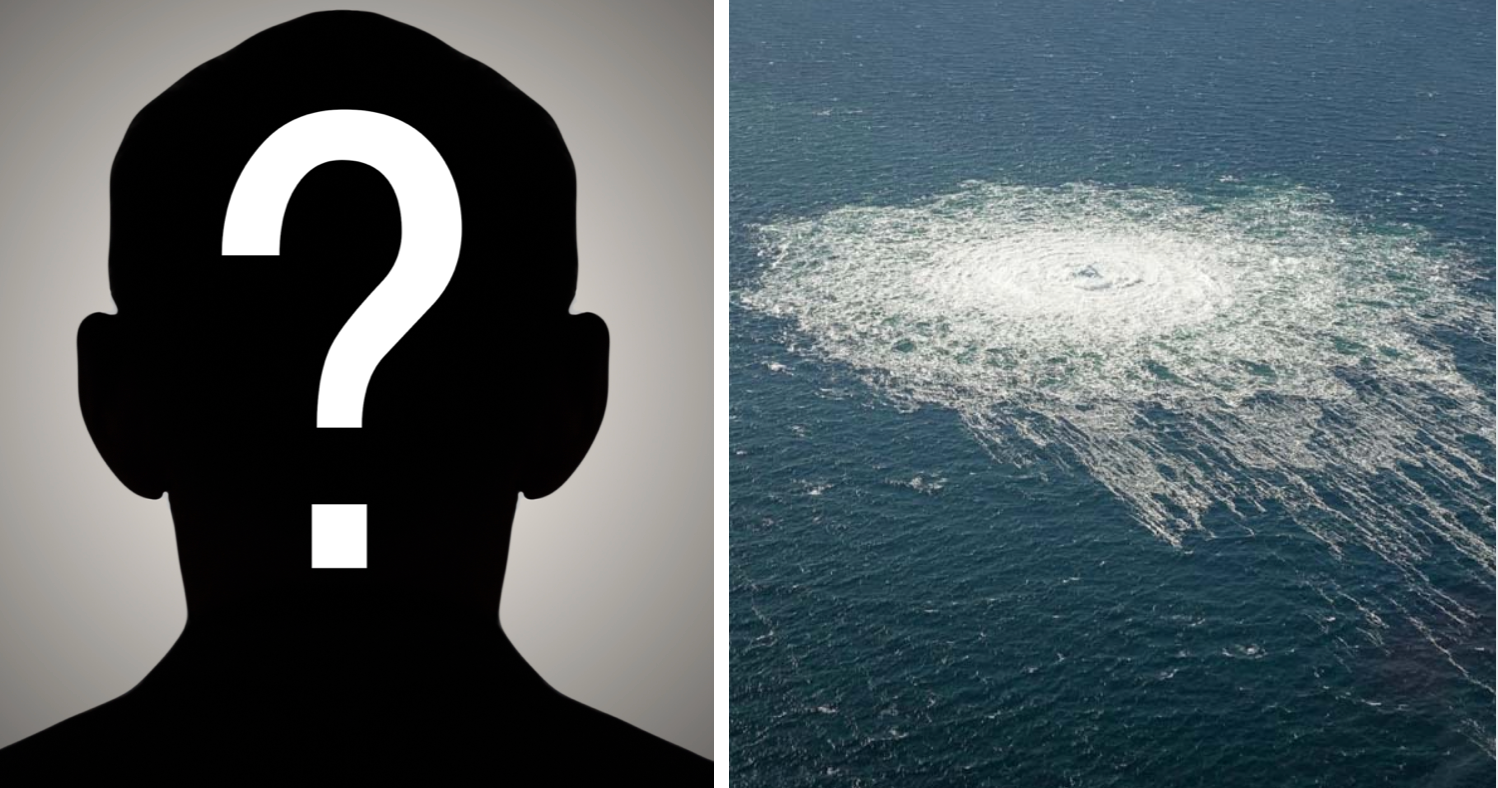After three years, the mystery of who sabotaged the Nord Stream pipelines in September 2022 has, for all intents and purposes, been solved.
But unlike the dramatic unmasking during a Scooby-Doo episode or the riveting declaration of "who done it" in front of a dinner party of sweating suspects in a Poirot mystery, the arrest of a former Ukrainian military officer accused of leading a team to sabotage the Nord Stream 1 and Nord Stream 2 pipelines on Sept. 26, 2022, has landed like a cell phone going off in church — everyone hears something, but no one looks and pretends not to notice.
That is probably because while Ukrainians have been suspected for some time of being behind the explosions, which resulted in both pipelines — which had delivered some 35% of natural gas to Europe before the war — going off-line for the foreseeable future, it didn't truly fit the preferred narrative. When the incident happened three years ago the mainstream media along with world leaders and pundits everywhere rushed to blame Russia. It didn't matter that Russia was part owner of the pipelines and would be sabotaging its its own energy exports — Moscow was diabolical and must be doing this to send a message.
When the investigation starting going in the opposite direction, the Swedes stopped investigating. The case has been largely in the hands of the Germans, which in 2023 were reportedly on the trail of a Roman Chervinsky, —"a decorated 48-year-old colonel who served in Ukraine’s special operations forces" — as the coordinator but not the planner of a plot that involved a small, rogue group of saboteurs who took a small sailboat out into the Black Sea to plant the underwater explosives. Those reports indicated the plot went all the way up the chain to Gen. Valeriy Zaluzhniy, then-commander in chief of Ukraine’s armed forces.
The most recent news, reported on Friday, is of a one "Serhii K." — "a now-retired captain in Ukraine’s armed forces, previously served in Ukraine’s secret service SBU, as well as in an elite unit that defended Kyiv in the early months of Russia’s full-scale invasion in 2022" — who was detained on Aug. 18 while traveling with his family in Italy. He is accused of being recruited for the plot and leading the team of two soldiers and four civilian divers who sabotaged the pipelines. He is the "first" of the group to be arrested, according to the Wall Street Journal.
The paper says that German authorities have pieced together the contours of the "Operation Diameter":
The plot was developed by senior Ukrainian military and secret service officers under the command of a senior special forces general commanding the elite army unit.
The sabotage plan—internally code-named Operation Diameter—was ultimately overseen by the then-commander in chief of Ukraine’s armed forces, Gen. Valeriy Zaluzhniy, according to multiple people involved in or familiar with the mission.
President Volodymyr Zelensky was later informed and, after objections from the Biden administration, ordered Zaluzhniy to abort the mission. Nevertheless, the team proceeded, detonating the explosives on Sept. 26, 2022, an attack that set off years of international investigation and disrupted Europe’s energy markets.
The WSJ article does not mention Chervinsky or name him as the possible ex-special forces officer who recruited the team.
Both Zaluzhniy and Zelensky maintain they had nothing to do with the damage of the pipelines, after which the United States became a much bigger supplier of Liquid Natural Gas to European markets. "“The United States without a question (has benefited),” my colleague Anatol Lieven told me on the 1-year anniversary of the explosions. “It made it much more difficult for Germany to ever move back into an intensive energy relationship with Russia and made German and other European countries even more permanently dependent on imports of liquified natural gas from the United States.”
The legendary investigative journalist Sy Hersh had of course caused a seismic rumble himself when he reported in February 2023 that the U.S., under the authority of President Joe Biden, was responsible for the explosions. He has offered no further evidence or updates on that story, now more than two years old, though some still believe in the U.S. complicity, even going to far as to think the Ukrainian "team" is a cover for the real divers who planted the explosives that day. Hersh suggested as much in March 2023 when he said he believed the CIA was dispatched to concoct "a cover story" — an "alternate version" of events — "in an effort to discount the claim that Biden had ordered the pipelines’ destruction."
But there has been an arrest and the German authorities are calling this a "breakthrough" in the case. One thing has definitely been solved: that the elite establishment that rushed to blame Russia was dead wrong. Why no one cares to acknowledge that is well, not much of a mystery.
- Diplomacy Watch: Ukrainian officers tied to Nord Stream blasts ›
- Latest Nord Stream break: propaganda, patsy, or truth? ›
- What is Poland hiding besides the Ukrainian Nord Steam suspect? | Responsible Statecraft ›
















